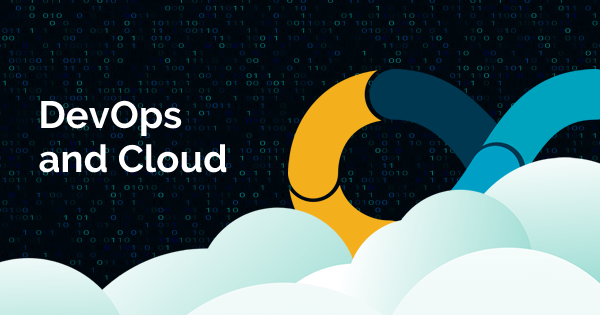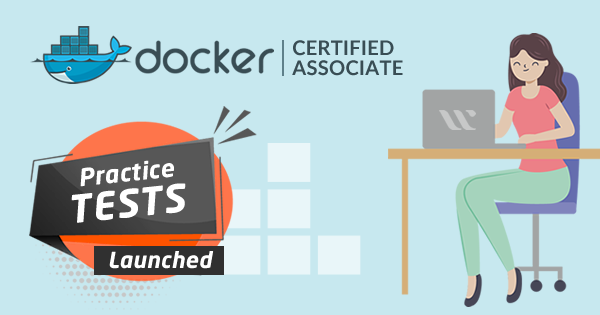DevOps has been responsible for providing a new and wider perspective on the delivery of software solutions. The winning combination of DevOps and Cloud Computing is introducing new benefits for cloud development. Readers should note that DevOps is not just a set of productivity tools. Actually, DevOps implies changes in the culture, precedents for automation, clear measurement of risks, and flexible file sharing.
DevOps has helped many enterprises to shift from the monolithic approaches for application development towards an agile perspective. The benefits of DevOps are prominent reasons for the increasing demand for cloud DevOps services. The impact of DevOps on cloud development does not relate only to the benefit of faster software delivery. However, there is more to the role of DevOps in cloud development, other than the assurance of fast results.
Aspired to become a certified Cloud Computing professional? Check out our Cloud Computing Certification Training Courses.
The following discussion aims to provide a description of the DevOps and Cloud Computing symbiotic relationship. The discussion would start off with a reflection on “what is DevOps,” followed by identifying the ways in which DevOps is changing cloud development. In addition, the discussion would also focus on the reasons for which cloud developer teams use DevOps. Finally, the discussion would highlight the best practices for cloud development using DevOps.
Defining DevOps and Its Necessity
The foremost concern in understanding the impact of DevOps on cloud development is the answer to “what is DevOps”! Actually, DevOps is a new movement in the IT sector that involves collaboration between the development engineer and the IT operations team. The prime objective of DevOps is the improvement of communication and coordination among the two crucial teams for application development. Furthermore, DevOps also provides a detailed overview of the management of a particular application’s lifecycle.
As a result, enterprises could update their applications regularly alongside bringing new features onboard with considerable ease. The concept of DevOps comes from the combination of inputs from the lean and agile strategies. DevOps strategies are the ideal alternative for the optimization of delivery of new features, services, and applications to end-users. The application of DevOps is largely evident in the applications that require new features at faster rates, thereby implying the need for uninterrupted and faster deployment.
The relationship between DevOps and Cloud Computing builds primarily on the following crucial benefits of DevOps.
- Provides increased speed in the total application workflow.
- Provides enhanced control over the application lifecycle by allowing factors like user feedback as a part of product design.
- Enables better collaboration among teams across various specializations.
- Thrives totally on customer focus through better control over workflows.
- Provides security fixes, a centralized architecture, and compliance measures for ensuring safeguards for sensitive information in the application development workflow.
Must Read: 10 Must Have Skills for DevOps Professionals
How is DevOps Changing the Game?
Looking at these benefits of DevOps, it is clear that the demand for cloud DevOps services is reasonable. Now, let us move forward to an observation of how DevOps has been a game-changer in software development. In the most basic sense, DevOps refers to the automation of agile methodologies.
The primary idea underlying DevOps is to empower developers to respond to business requirements in real-time. And DevOps achieves this by taking away the latency concerns that have been troubling software development for many years now. An evaluation of the close links between DevOps and Cloud Computing can help in clear anticipation of the role of DevOps as a game-changer in cloud development.
Cloud computing is centralized in nature, thereby providing the perfect foundation to run DevOps automation. The cloud offers a centralized platform for testing, deployment, and production. At many instances in the past, the distributed enterprise systems did not align perfectly with centralized software deployment. Therefore, using cloud and DevOps together leads to the resolution of many issues pertaining to distributed complexity.
DevOps automation focuses on the cloud more with every passing day. Various public and private cloud computing service providers integrate DevOps tools on their platform. For example, continuous development and continuous integration tools. Such a level of integration between cloud and DevOps can lead to various benefits.
Enterprises can reduce costs of on-premises DevOps automation technology alongside imposing centralized governance and control to ensure effective DevOps processes. Many developers adopting DevOps could find better governance, thereby leading to limited issues. Furthermore, control over the development process improves through centralized cloud access.
The next important highlight regarding the combination of DevOps and Cloud refers to the reduction in the necessity for accounting the leveraged resources. Therefore, using DevOps for cloud development could help in tracking the utilization of resources according to the application, data, or user.
These factors clearly emphasize on the changing state of cloud development with the introduction of DevOps. The interesting factor, in this case, is that DevOps is responsible for fostering the interest and adoption rates of the cloud. Therefore, it is imperative to note how DevOps has become a preferred option for cloud developers. So, let us find what exactly leads enterprises to try out the combination of DevOps and Cloud Computing!
Aspired to become a certified DevOps professional? Enroll now in the DevOps certification training courses and get ready to become a certified professional!
Why Should Enterprises Opt for DevOps in Cloud Development?
Many organizations all over the world face concerns regarding simplification and speeding up a particular development process. Actually, these issues can restrict the growth of an enterprise for a considerable period of time. There are many instances when industry leaders could not acquire companies or launch products due to limitations of IT operations in maintaining track of the application development backlog.
The majority of industry leaders understand that migrating to DevOps from a waterfall methodology can help in resolving the application development processes. In addition, the industry leaders also anticipate that DevOps would not be enough on a standalone basis for their requirements.
For example, the delay in making capital investments on hardware and software could slow down the development process. As a result, enterprises depending solely on DevOps would have their developers waiting for capital resources. Subsequently, the delay in the deployment of applications becomes clearly evident.
We can observe one thing clearly, and that is the interdependency of DevOps and Cloud. DevOps won’t render its potential without the cloud, and similarly, development on the cloud would not be reasonable without DevOps. The dependencies between cloud and DevOps is the main reason for driving the large-scale impacts of DevOps on modern cloud development.
DevOps domain is on rise with benefits for organizations and new opportunities for professionals. Here’re the reasons why you should learn DevOps!
Impact of DevOps on the Cloud Development Workflow
It is clearly evident that cloud and DevOps are interrelated entities. So, how does DevOps impact the cloud development process? First of all, you need to understand that the development of applications on the cloud requires the initiation of the change at the software engineering level. Developers could not start the change at the C-level in the course of cloud application development.
The first course of action that showcases the impact of DevOps on cloud development is the understanding of benefits from developing cloud applications with DevOps cloud tools. Stakeholders should understand these benefits clearly in order to reduce the concerns of resistance. Cloud DevOps engineer teams should come on board the project with a clear understanding of the benefits of DevOps-powered cloud development.
Generally, enterprise development could select a particular cloud platform while establishing the DevOps process. Cloud DevOps engineer teams should automate their agile processes using cloud-based as well as non-cloud-based DevOps automation tools. Simultaneously, DevOps teams should also evaluate the options for extending DevOps processes and automation to a public or private cloud.
The proven steps to complete a cloud development project using DevOps can further highlight the relationship between DevOps and Cloud.
- The first step involves the definition of the requirements from the cloud development project.
- The next step involves establishing the business case for the development project i.e., defining the ROI.
- The third step requires the definition of initial DevOps processes that would continually change and improve along the project’s lifecycle.
- Now, you have to establish synergy between DevOps processes, the target platform, automation, and culture. Basically, you have to provide the definition of the initial DevOps solution in this step.
- As mentioned previously, it is important to bring all stakeholders on board while using DevOps for cloud development. Developers and IT operations teams should develop the leadership to take on new processes, platforms, daily practices, and tools.
- The final stage in ensuring the combination of DevOps and Cloud for cloud development involves the specification of CloudOps. CloudOps basically indicate the precedents for operations of applications in the cloud.
With the increasing demand for Azure DevOps engineers, candidates are moving towards DevOps career. Here’s how to become an Azure DevOps engineer!
Best Practices for DevOps in Cloud Development
Now, let us focus on the best practices for Cloud DevOps that can change the face of cloud development.
-
Continuous Integration
The practice of continuous integration is possible through the availability of the codebase and resources of an application in a centralized cloud repository. It helps developers in identifying issues in the code alongside ensuring relevant quality assurance methods.
-
Continuous Delivery
Continuous delivery practice helps in the development and preparation of applications for release after introducing new changes.
Read this article to know more about Continuous Integration and Continuous Development.
-
Automating Application Deployment
Automation of application deployment alongside continuous integration and continuous delivery practices is also the recommended best practice for using DevOps and Cloud. Users can create completely automated deployment pipelines through these best practices.
-
Continuous Quality Assurance
Continuous quality assurance is another prominent requirement among best practices for obtaining the best of DevOps for cloud development. The DevOps approach to cloud provisioning is responsible for improved quality assurance for cloud development projects. Cloud service providers can help in the automation of QA processes.
Furthermore, you should also set up low-cost production tests with considerable ease. The DevOps approach to cloud provisioning helps developers stay away from quality testing on virtual machines. On the contrary, developers could use cloud resources for verifying the quality of an application before deployment. It is essential to note that all these processes should happen in the scope of the whole DevOps workflow.
-
Microservices
You can also use the DevOps and Cloud combination for efficient cloud development by relying on microservices. Microservices are small processes that are ideal for a specific process in cloud applications.
-
Infrastructure as a Code
The combination of DevOps practices and cloud development is also visibly evident in infrastructure as code. Developers could leverage infrastructure as code functionalities for treating the infrastructure like the application code.
-
Sharing Expertise
The final entry in the best practices for cloud DevOps refers to knowledge sharing. Knowledge sharing is the basic precedent of DevOps that is possible through communication and collaboration among teams. The facility of a centralized cloud repository helps in easier and flexible information sharing among stakeholders in cloud development projects. As a result, developers could provide detailed insights on the working of the application, and the operations team could contribute an improvement to the program in live production environments.
Must Read: Ansible Vs Chef Vs Puppet – A Complete Comparison
Conclusion
The development of enterprises in the digital era relies prominently on bringing software into operations. Digital transformation requires enterprises to take the big leap towards DevOps and Cloud, with the assurance of promising value. As the integrations between the cloud and DevOps continue to become more explicit, the potential for adding security in cloud development also becomes inevitable.
Industry leaders would have to work towards reducing the technical and business obstacles for the adoption of DevOps in cloud development. The most important factor that would render long-term positive outcomes from DevOps for cloud development refers to cultural adoption. Enterprises should change their culture around DevOps for leveraging its maximum potential for its benefits.
Learn more about DevOps and the Cloud along with their interdependencies before you start your cloud DevOps journey. To validate your DevOps and Cloud skills, you can choose one or more among the top certifications. We offer best-in-industry training courses for the Cloud certifications as well as DevOps certifications. Join us and get ready to become a certified professional!
- Top 10 Highest Paying Cloud Certifications in 2024 - March 1, 2023
- 12 AWS Certifications – Which One Should I Choose? - February 22, 2023
- 11 Kubernetes Security Best Practices you should follow in 2024 - May 30, 2022
- How to run Kubernetes on AWS – A detailed Guide! - May 30, 2022
- Free questions on CompTIA Network+ (N10-008) Certification Exam - April 13, 2022
- 30 Free Questions on Microsoft Azure AI Fundamentals (AI-900) - March 25, 2022
- How to Integrate Jenkins with GitHub? - March 22, 2022
- How to Create CI/CD Pipeline Inside Jenkins ? - March 22, 2022



